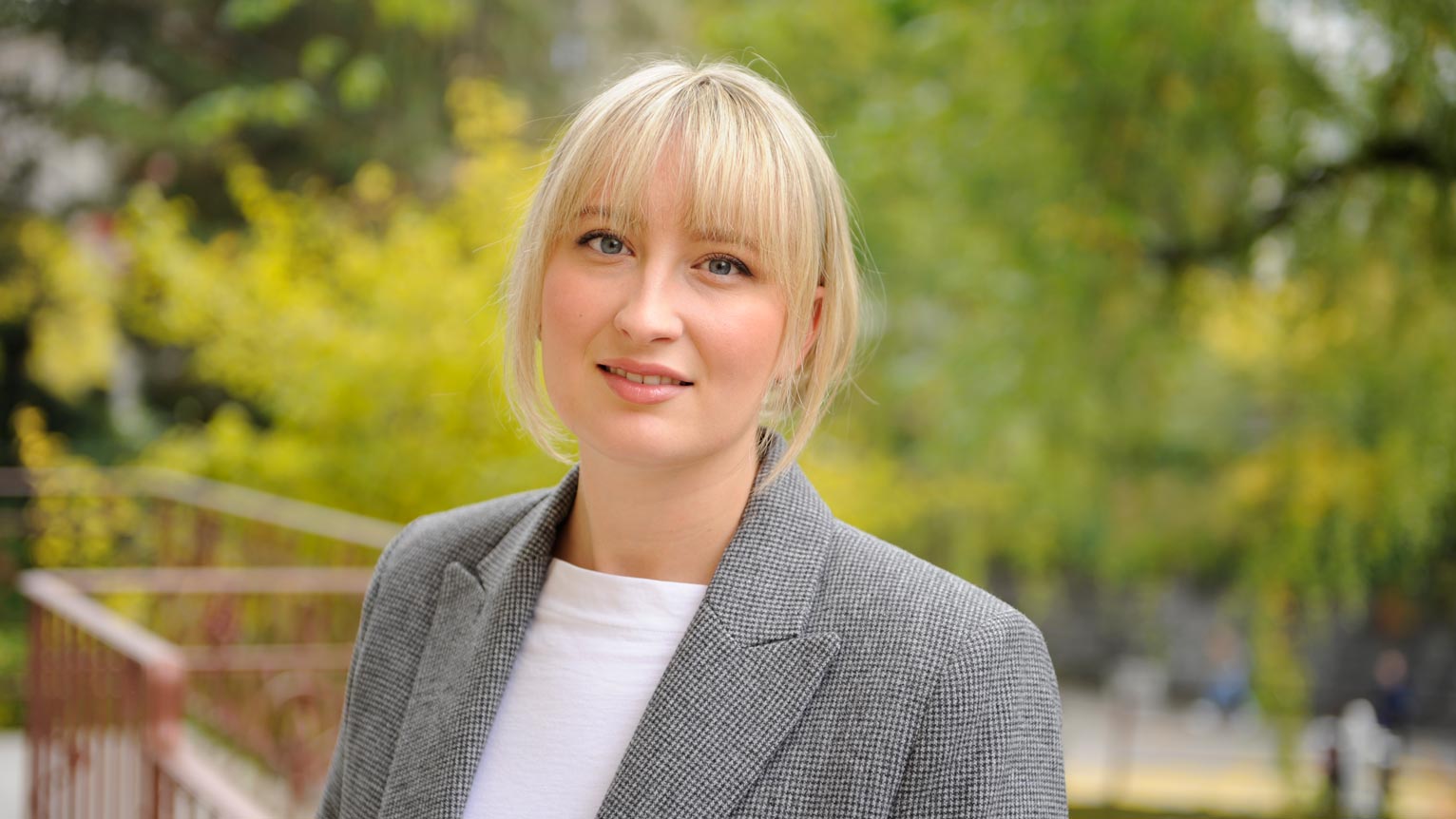The future of liberal democracy
Three questions for Wolfgang Schäuble
Excerpt from an interview in Swiss daily Tages-Anzeiger at the sidelines of the UBS Center Opinion on 16 October 2023
In politics, sometimes nothing or not much happens for years. And then the world can change completely within days. Why does politics like to jump ahead in spurts?
In free societies, where people are doing well, there is a great risk that they will resist change. We may complain about everything, but we really want everything to remain as it is, and that is why we need pressure if we want to change something. Crises are therefore opportunities to realize things that could not have been pushed through earlier. If the pressure is strong enough, it can happen quickly if necessary. Last year, because we had to do without Russian natural gas, we built liquefied natural gas terminals on the German coast within a few months. That is not really exciting, but it was sensational for Germany. Russia’s attack on Ukraine has enabled many things that previously seemed unthinkable.
Donald Trump can become US President again in 2024. Would Europe be prepared for this?
We do not know whether Trump will be re-elected or what the consequences would be for the transatlantic relationship. What is certain is that if we Europeans make greater contributions to our own security, that will strengthen those forces in the United States that are prepared to stand by Europe.
Even for small countries like Switzerland, the war brings a turning point. Is there a future for an alienated neutrality in the 21st century?
Switzerland has played its specific role in Europe and the world in a very responsible manner. It has not merely remained on the sidelines. It has been involved in many international organizations, and it also uses its role to offer a seat to some of these institutions – which is not to Switzerland’s detriment. That is why I always disagree when neutrality is ridiculed. Whether it still fits into the world of the twenty-first century is another question.
Three questions for Wolfgang Schäuble
Excerpt from an interview in Swiss daily Tages-Anzeiger at the sidelines of the UBS Center Opinion on 16 October 2023
In politics, sometimes nothing or not much happens for years. And then the world can change completely within days. Why does politics like to jump ahead in spurts?
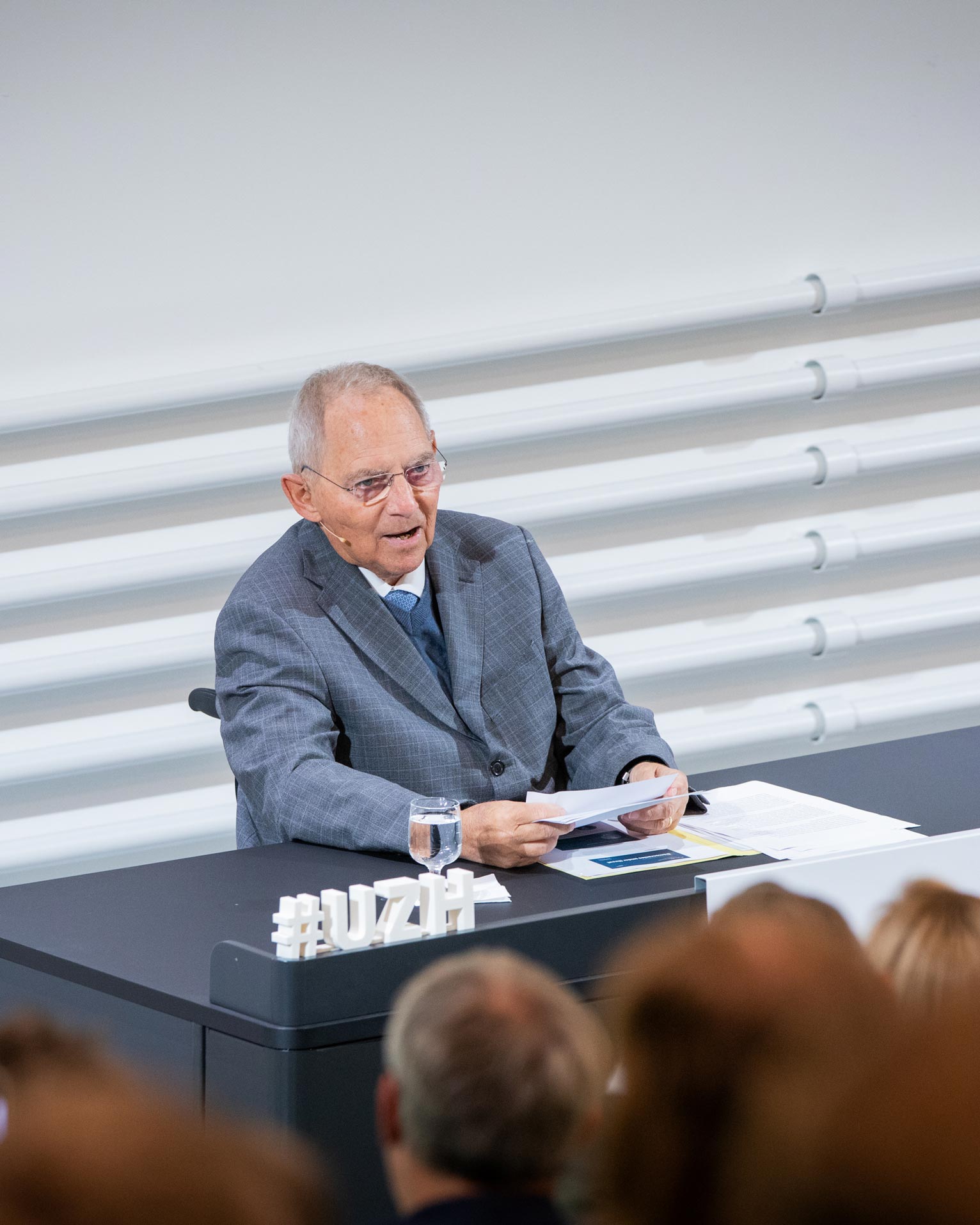
Democratic conflict and polarization
Healthy or harmful?
Several developments in Western democracies over the past decade have sparked worries about political stability. Standing out are the rise of radical political parties, heated polarization around questions of immigration, nationalism, or social liberalism, and – in some cases – attacks on democratic institutions. However, conflict and choice between clearly distinctive alternative ideas of how societies and economies should be governed are at the heart of democracy. Democracy needs competition and conflict. But where is the line between healthy and harmful conflict and polarization? Silja Häusermann and Simon Bornschier address this question in our Public Paper.
Healthy or harmful?
Several developments in Western democracies over the past decade have sparked worries about political stability. Standing out are the rise of radical political parties, heated polarization around questions of immigration, nationalism, or social liberalism, and – in some cases – attacks on democratic institutions. However, conflict and choice between clearly distinctive alternative ideas of how societies and economies should be governed are at the heart of democracy. Democracy needs competition and conflict. But where is the line between healthy and harmful conflict and polarization? Silja Häusermann and Simon Bornschier address this question in our Public Paper.
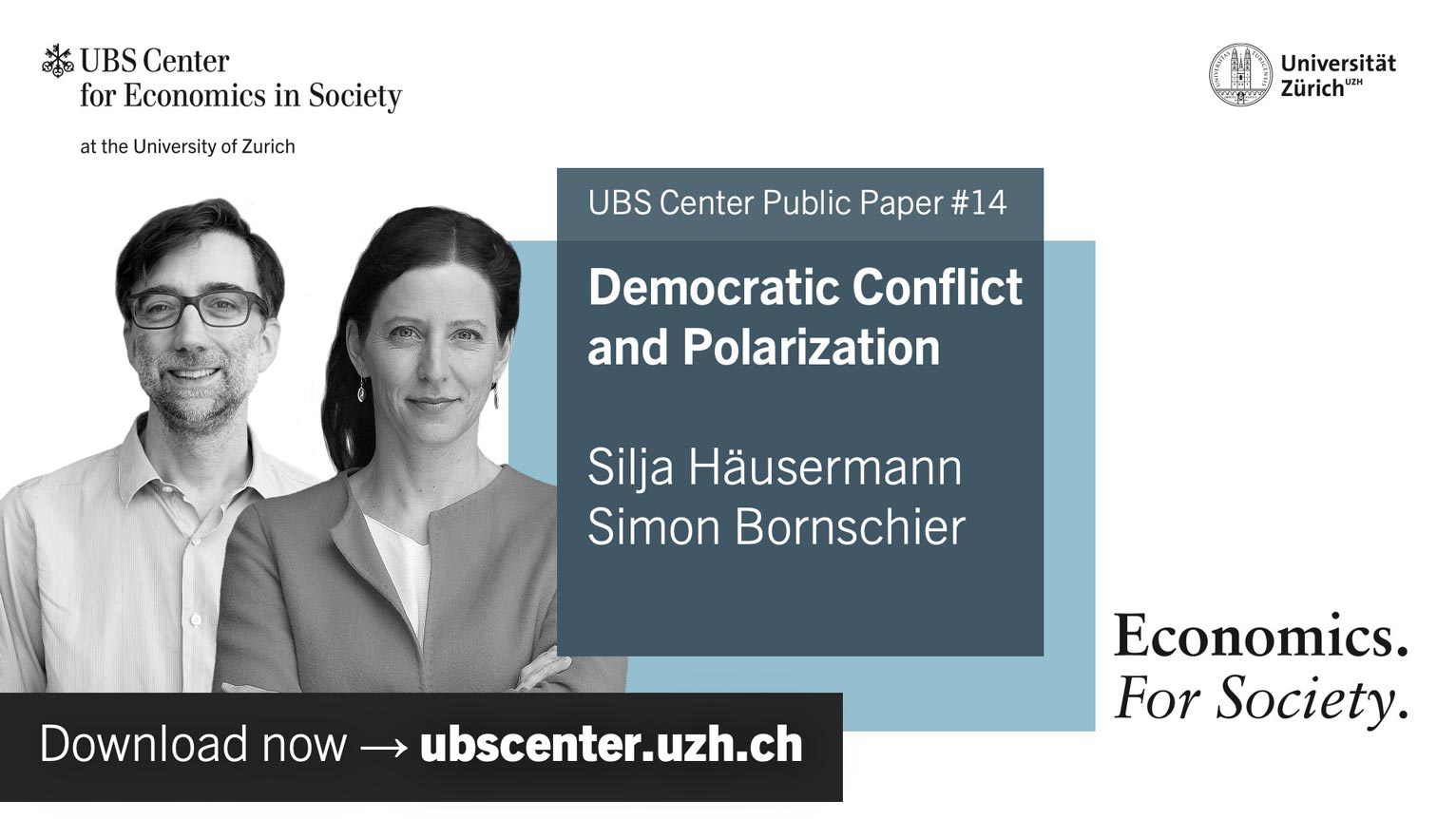
Federalism – fit for global challenges?
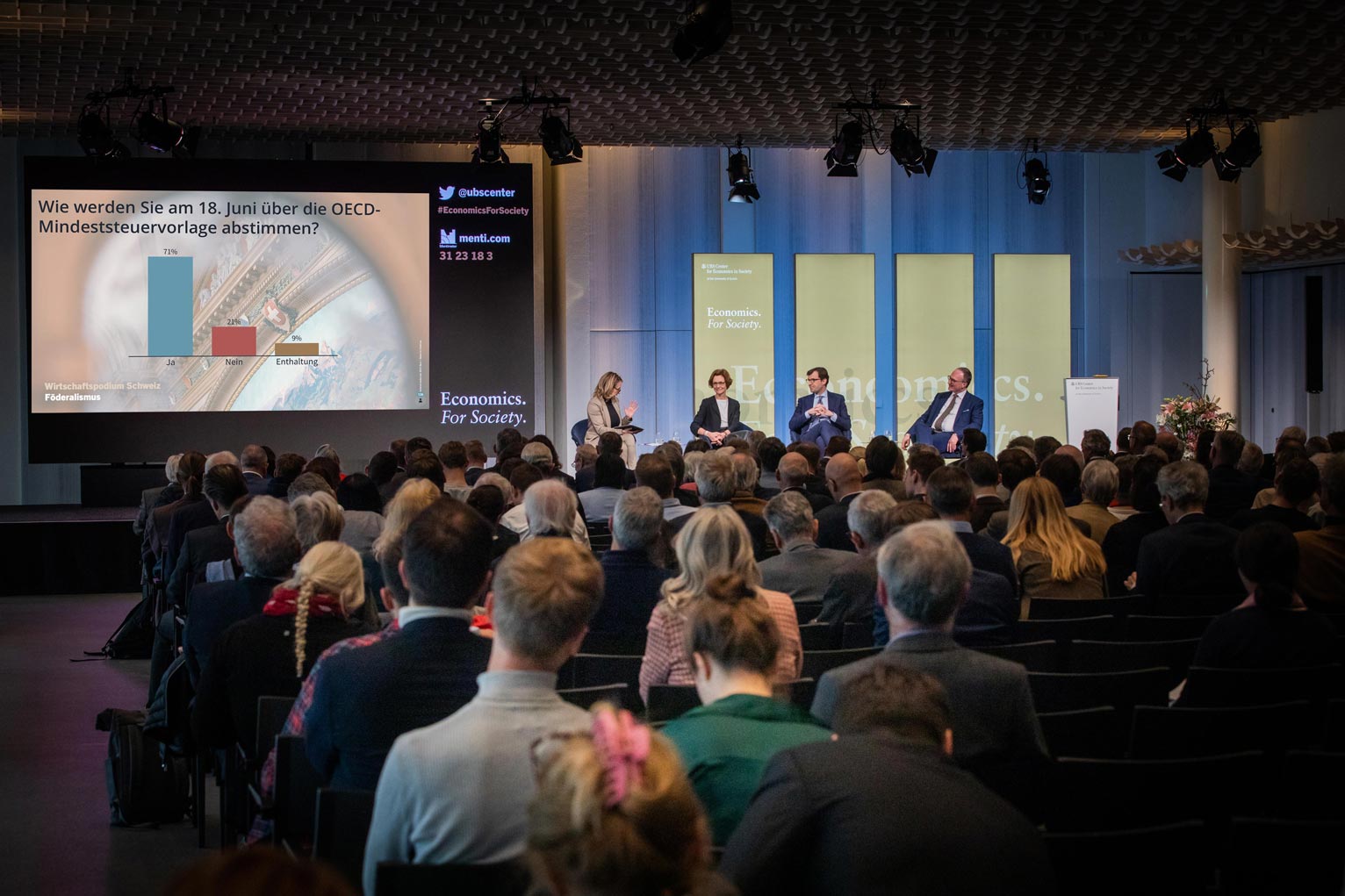
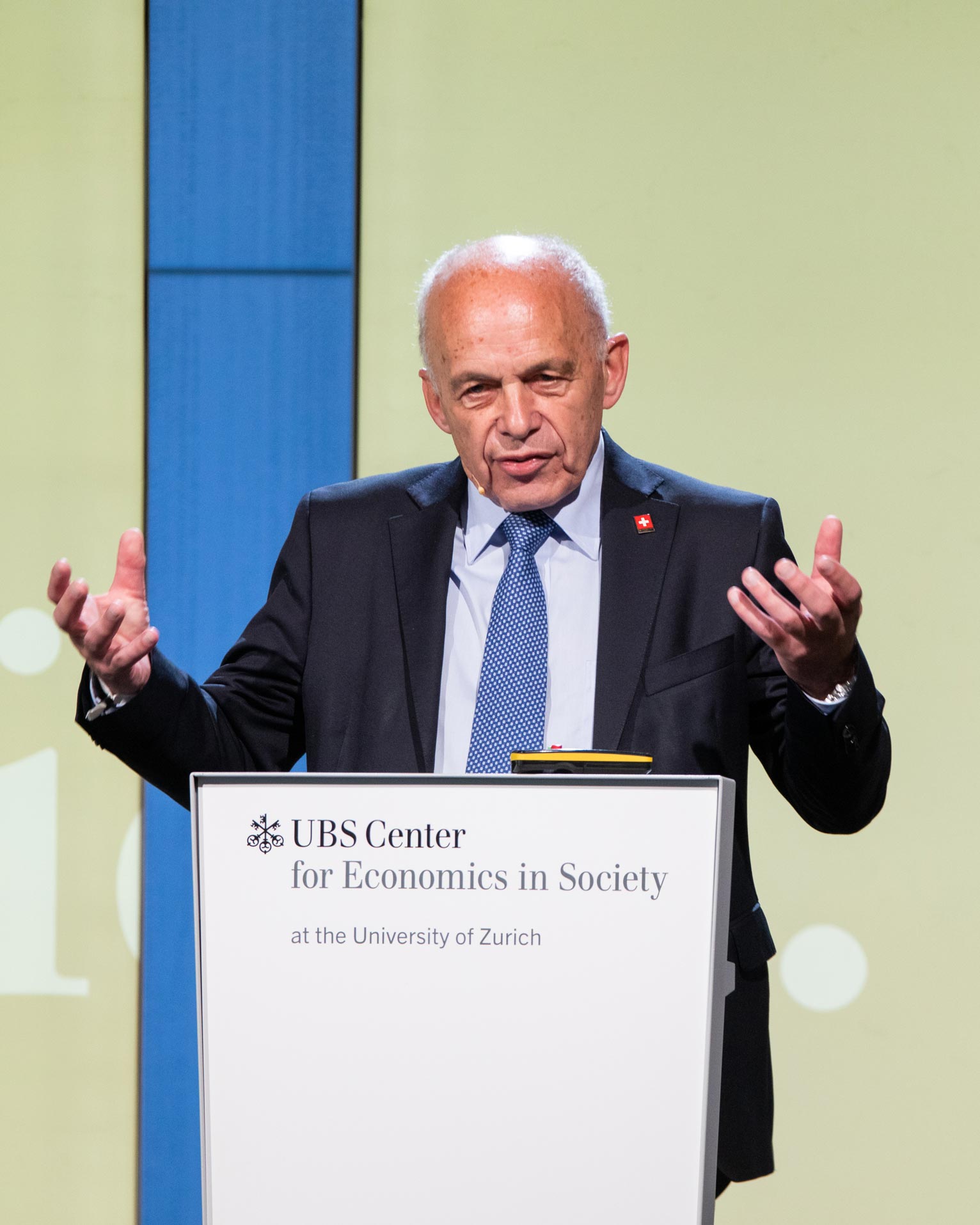
Empires, nation-states and democracies
The international order in historical perspective
Similar to the declining number of people killed as a result of colonial or imperial conflicts, the number of colonial or imperial conflicts has also declined substantially after World War II. The figure shows conflicts between two parties, where at least one is the government of a state. One-sided violence – such as massacres or genocide – is not included. Ongoing conflicts are represented for every year in which they resulted in at least 25 direct deaths (civilian or military). In our Public Paper, Gérard Roland sheds light on this and other aspects of the historical development of different forms of states.
The international order in historical perspective
Similar to the declining number of people killed as a result of colonial or imperial conflicts, the number of colonial or imperial conflicts has also declined substantially after World War II. The figure shows conflicts between two parties, where at least one is the government of a state. One-sided violence – such as massacres or genocide – is not included. Ongoing conflicts are represented for every year in which they resulted in at least 25 direct deaths (civilian or military). In our Public Paper, Gérard Roland sheds light on this and other aspects of the historical development of different forms of states.
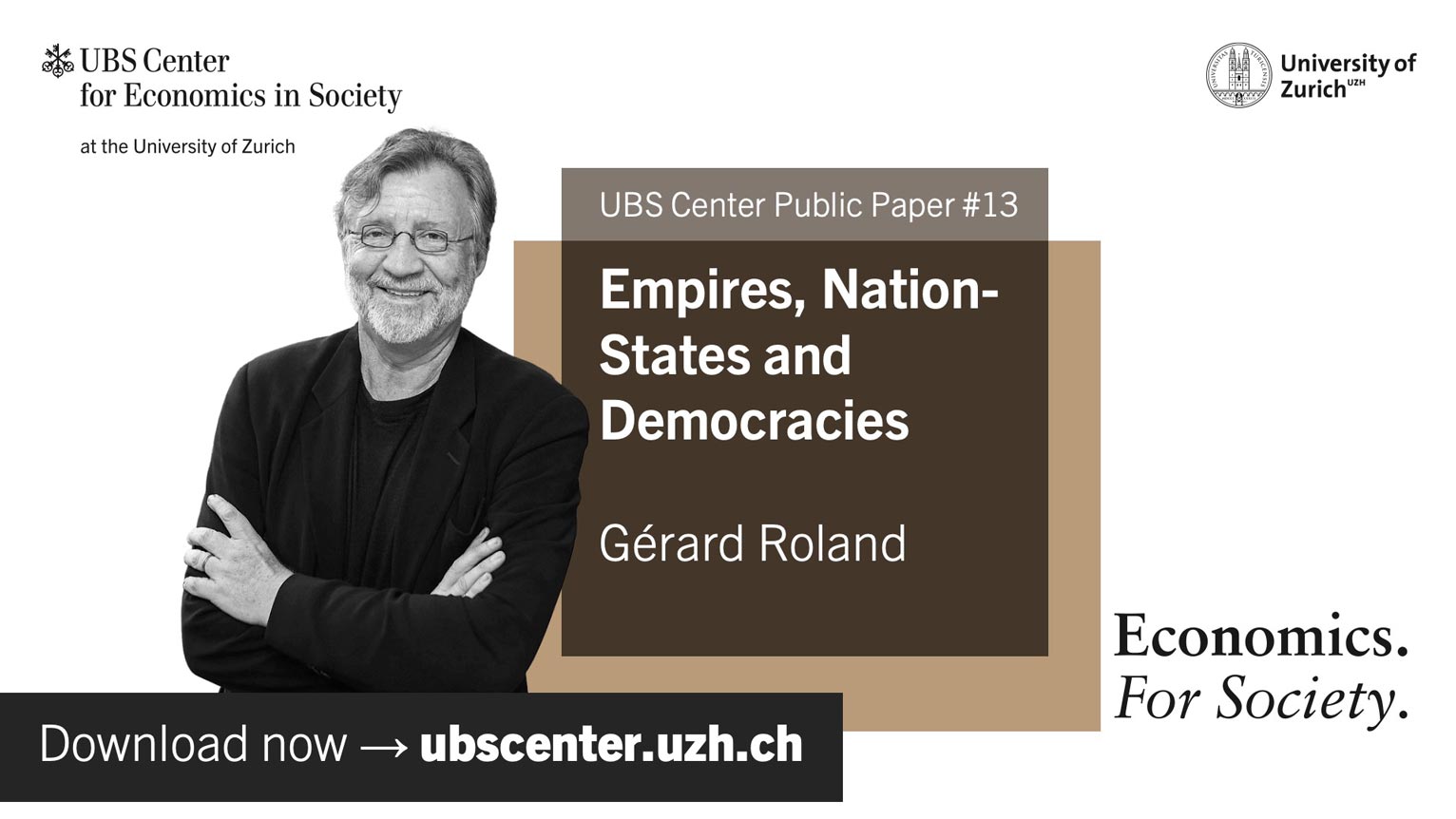
Democracies under threat
Three interview excerpts
This year’s UBS Center Forum for Economic Dialogue focused on the current state of democracies, which are increasingly under pressure. The event was characterized by exciting and differentiated discussions. Our renowned guests were sought-after interview partners – not only on stage but also by the press, as these short excerpts show.
Nobel laureate Herta Müller interviewed on stage by Carolin Roth:
Will Putin emerge from the conflict between Israel and Hamas as a winner or a loser?
I think this orgy of bloodshed in Israel has definitely benefited him. Because people are now inevitably looking at Israel. And Putin has always been antisemitic – first covertly, now more and more clearly.
Jason Brennan was interviewed by Philipp Löpfe (Watson):
You are a well-known critic of democracy. Your main argument is that most people are simply too stupid for democracy. Is it fair to summarize it that way?
Stupidity is not the right term. In principle, people are perfectly capable of organizing themselves democratically. But in the current system they are given the wrong incentives. They are given the feeling that their vote is so insignificant that they only see it as a symbol. That’s why they don’t bother to inform themselves.
Hélène Landemore was interviewed by Corina Gall (NZZ):
Macron continues to underline his authority by pushing through even controversial plans unwaveringly. Is there a risk of him becoming autocratic?
Macron has crossed this line with the pension reform. In view of the age pyramid, raising the retirement age is probably justified. The problem is that, despite the unusually loud criticism, he bypassed parliament and the population.
Three interview excerpts
This year’s UBS Center Forum for Economic Dialogue focused on the current state of democracies, which are increasingly under pressure. The event was characterized by exciting and differentiated discussions. Our renowned guests were sought-after interview partners – not only on stage but also by the press, as these short excerpts show.
Nobel laureate Herta Müller interviewed on stage by Carolin Roth:
Will Putin emerge from the conflict between Israel and Hamas as a winner or a loser?
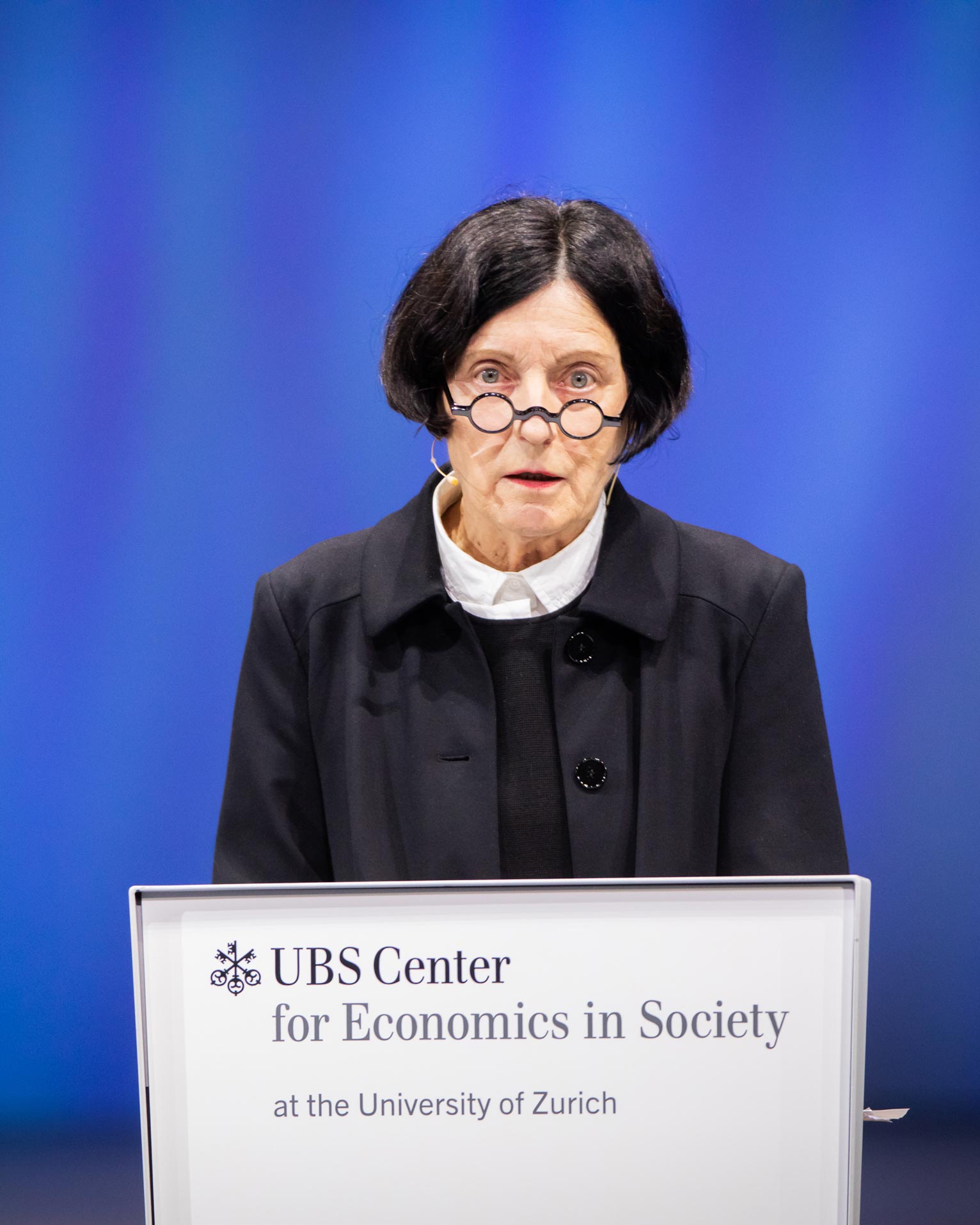
Why rationality matters
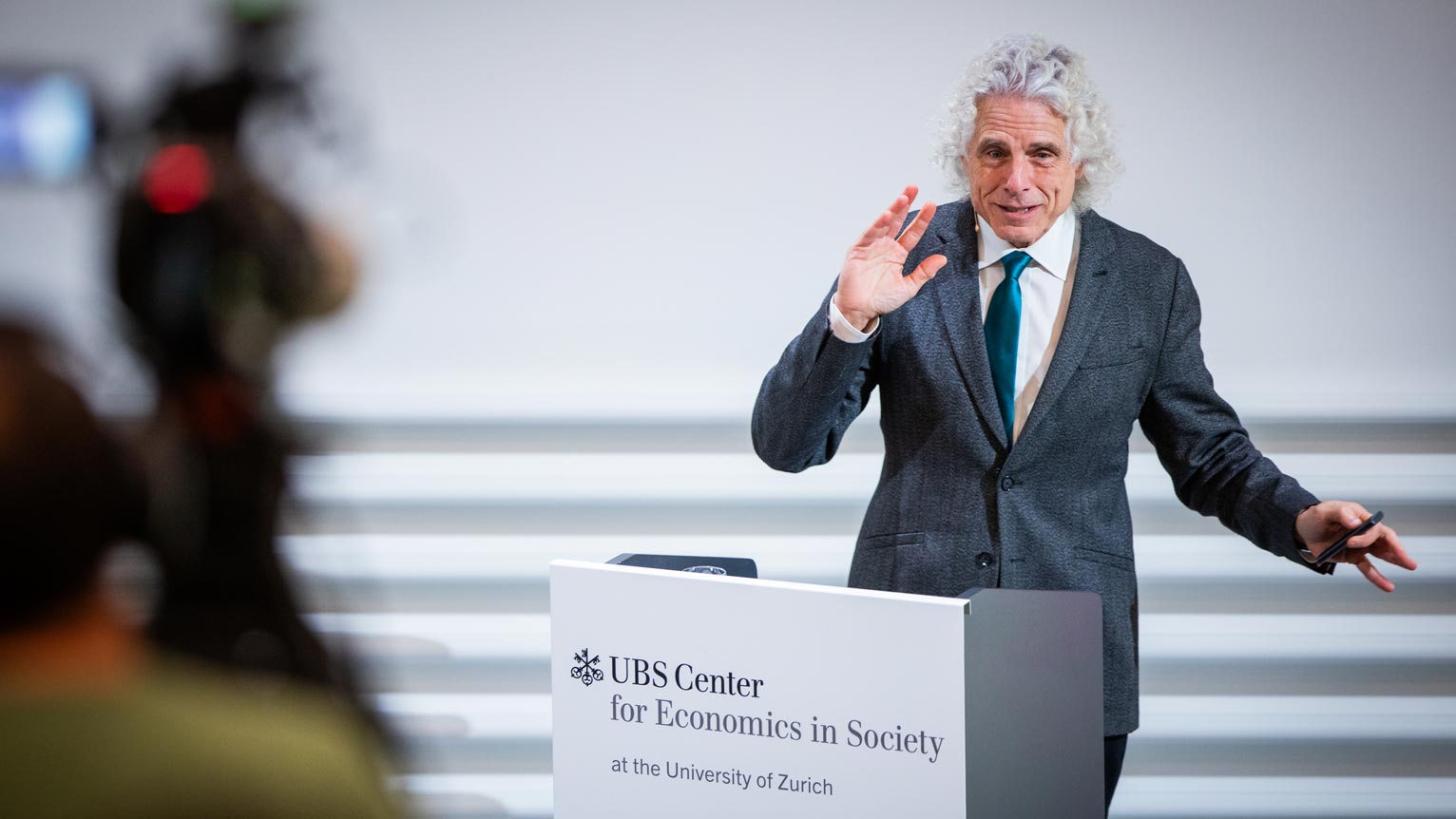
Financial risks from climate change
Recap Webcast
What are the financial risks from a changing climate? Lint Barrage, Associate Professor and Chair of Energy and Climate Economics at ETH Zurich, provided a perspective in her webcast by reviewing recent estimates of the macroeconomic effects of climate change around the world, including a discussion of the key climate impact mechanisms which are vs. are not yet covered in prevailing risk assessments. She then offered a finance perspective by reviewing the growing evidence base for the capitalization of climatic risks into asset prices, including a discussion of some of the limits to such capitalization and the risks they pose to future asset price stability. “Current policies are insufficient to reach global climate policy objectives, we need new evidence-based knowledge to more accurately assess the consequences of climate change and counteracting policies”, Barrage stressed. She herself is working on new models to fill this knowledge gap.
Recap Webcast
What are the financial risks from a changing climate? Lint Barrage, Associate Professor and Chair of Energy and Climate Economics at ETH Zurich, provided a perspective in her webcast by reviewing recent estimates of the macroeconomic effects of climate change around the world, including a discussion of the key climate impact mechanisms which are vs. are not yet covered in prevailing risk assessments. She then offered a finance perspective by reviewing the growing evidence base for the capitalization of climatic risks into asset prices, including a discussion of some of the limits to such capitalization and the risks they pose to future asset price stability. “Current policies are insufficient to reach global climate policy objectives, we need new evidence-based knowledge to more accurately assess the consequences of climate change and counteracting policies”, Barrage stressed. She herself is working on new models to fill this knowledge gap.
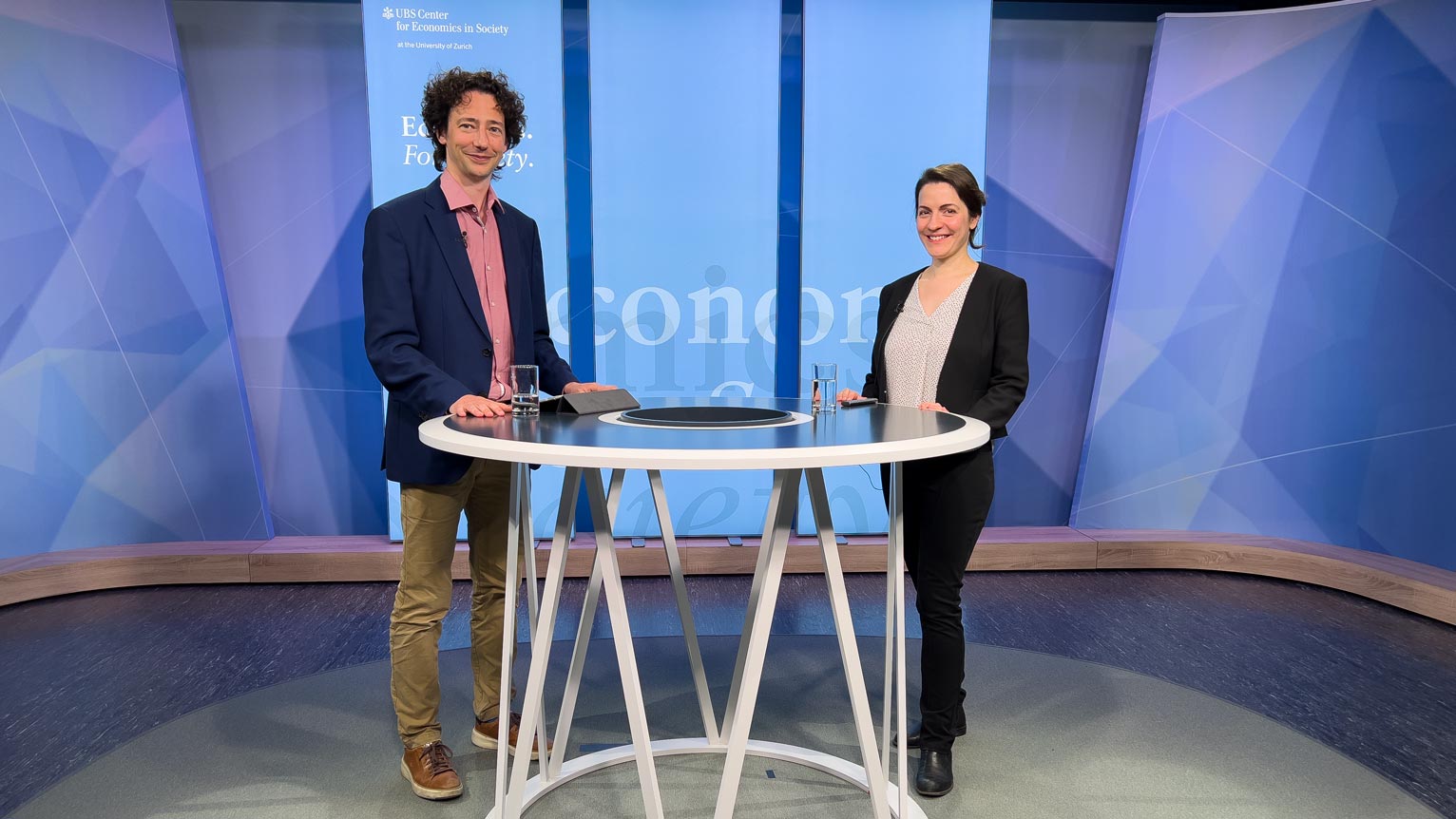
Center news
Congratulations, Chiara Aina
In 2017, outstanding young talent Chiara Aina was selected from several hundred applicants to the Zurich Graduate School of Economics as an UBS Center Scholarship holder. Now, she successfully defended her PhD Thesis, “Essays on expectations and contingencies”. Aina will be a Postdoctoral Fellow in the Department of Economics at Harvard University for the 2023–2024 academic year, and then will join Universitat Pompeu Fabra as an Assistant Professor.
New appointments to the Foundation Council
We are very pleased to welcome Dr. Stefan Seiler, Group Head Human Resources at UBS, as a new Member of the Foundation Council, and Thomas Pohl, Head Governmental Affairs at UBS, as our new Foundation Secretary.
David Dorn receives Hermann H. Gossen award
Congratulations to UBS Foundation Professor David Dorn for receiving the German Economic Association’s most prestigious academic prize, the Hermann Heinrich Gossen award. It is conferred annually to the best economist under age 45 in Germany, Austria and Switzerland.
Congratulations, Chiara Aina
In 2017, outstanding young talent Chiara Aina was selected from several hundred applicants to the Zurich Graduate School of Economics as an UBS Center Scholarship holder. Now, she successfully defended her PhD Thesis, “Essays on expectations and contingencies”. Aina will be a Postdoctoral Fellow in the Department of Economics at Harvard University for the 2023–2024 academic year, and then will join Universitat Pompeu Fabra as an Assistant Professor.
New appointments to the Foundation Council
We are very pleased to welcome Dr. Stefan Seiler, Group Head Human Resources at UBS, as a new Member of the Foundation Council, and Thomas Pohl, Head Governmental Affairs at UBS, as our new Foundation Secretary.
